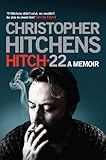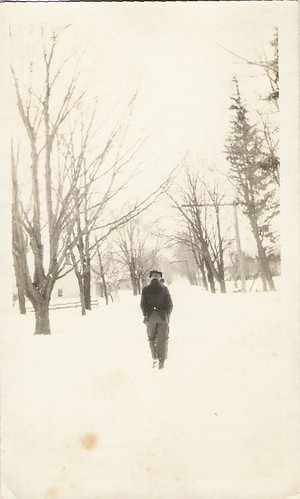When I signed up for this, I was sure it included some Mother Goose On the Loose training, which I hadn't had, but was glad to have some of the Every Child Ready To Read re-training in any case. MGOTL was not in evidence, but a worthwhile day was spent on ECRTR. This is at least the third time that I have been trained in this and I think it's great stuff. It's nice to have it refreshed and because you have new people with you, you get more ideas on how to use it than just a presenter can provide.
The class was presented by Susan Bard who was very energetic. I'd have been more energetic myself if some of the songs and movement things we did weren't making me dizzy. I had dinged my forehead on the bathroom stall door (something another librarian also did shortly after I was settled down with my feet up and a bag of ice on my head) which served mostly to keep me awake all day.
ECRTR is designed to make it easy and palatable to share early literacy tips with parents and caregivers during storytimes. Bite-size, manageable pieces of information are coupled with modeling during the storytime so that parents are "indoctrinated" in best practices practically without realizing it. The resources are also available
online (also in Spanish) for those who didn't have a throbbing forehead to keep them awake - but, honestly, these classes are so much fun you don't want to miss any of it.
Recommendations of great storytime picture books and audio abound. Those I particularly noted were:
Cha Cha Chimps by Judy Durango
Shark in the park by Nick Sharratt
Dinosaur Roar by Paul Strickland
Pío Peep by Alma Flor Ada and F. Isabel Campoy
Flower Garden by Eve Bunting
Bark George by Jules Feiffer
AudioDiaper GymWhaddaya Think Of That by Laurie Berkner
Toddlers Sing Playtime (actually, recordings of toddlers singing creeps me out)
Babies have 100 billion little brain cells to work with when they are born. They develop connections (synapses) primarily through sensory experiences. They will make more of these connections with higher seratonin levels, which come about from pleasurable experiences. Connections are inhibited by cortisol, which is released under stress, such as neglect and abuse, but they can also be stressed by the unreasonable expectations of the parent, childcare provider, or even the crabby librarian with the big lump on her head. Little kids have short attention spans and are apt to try to get up and walk around. It doesn't mean they aren't still listening. We need to let parents/caregivers know at the start that a little wiggle is okay. If a child gets bored, he can be removed, but he can also come back if he's settled down.
Kids get all these sensory experiences and then the ones that aren't experienced over and over are eventually pruned, which helps organize the brain. Those paths revisited can be early literacy skills that the child will need to learn to read and read with ease later. Before you can read, you need to know the words; the more words the child hears, the more will be recognized when seen printed, so talking to the child is important. Before you can read, you need to recognize shapes, because letters come in shapes. Shape recognition is good for babies. Letter recognition can begin with toddlers. And all this needs to be fun, not drills with flashcards. You don't need to be able to read to provide these early literacy skills to your child. You don't need to speak English - because all that knowledge is commutative from one language to another: hearing separate sounds/phonemes, connecting sounds with the shapes of letters, how a book works, etc.
The parents are the first and best teachers. They spend the most time with the children and the children model their behavior based on the adults they see the most - for good or ill.
None of this synapse connecting can wait for school. These are skills a kid needs to know before she
gets to school:
Print Motivation - enjoying books and reading
Phonological Awareness - hearing the distinct sounds in words and being able to play with them
Vocabulary - hearing the words so when they are seen in print, there is recognition
Narrative Skills - knowing stories have a beginning, middle, and end; following sequences; describing an activity
Print Awareness - recognizing print in the environment, being familiar with books
Letter Knowledge - recognizing one letter as distinct from another and knowing it can have more than one form (upper/lower cases, for instance).
Alphabet knowledge at entry into Kindergarten is a strong predictor of reading ability in 10th grade. Children from lower income groups have 25 hours of contact with picture book reading compared to over 1,200 hours for middle income children. 60% of kids are going to find learning to read difficult. As librarians we are in a position to make that process more fun by providing great materials and modeling best practices for the benefit of the caregivers. Encourage the parents to allow the children to pick out their own books and be sure to let them choose some non-fiction books as well as story picture books.
Now, that's all the general stuff. Let's get down to specifics that I needed reminding on!
Remember, only one early literacy skill per storytime! And just mention it briefly, paraphrased from the "What Can I Say" list in your own words, about three times during the storytime. That's all you have to do. It helps to write it out ahead and practice it.
Talking uses four parts of the brain and in a small child this can take some time because the neural pathways are still being built. Be sure to give 5 seconds response time to a young child. If there are older siblings, they might want to butt in, but let the young one finally get the answer out.
Use dialogic questions - you know, the ones that don't have yes or no answers. This isn't the best idea during a story if you have a group, but works well one on one. With a group you can ask that kind of question at the beginning or the end of the story, as in
Bark, George - you can ask What happened, Why is George saying hello instead of barking,
Where's the vet?! Read to kids the books you like. Read books the kids like. Read books with movements. Be a
Fierce Dinosaur! Be a
meek dinosaur. Never substitute an easy word. Use the "rare words" - and define them as you go along. If it's an object, point to a picture of it. If it's an action, act it out. Give a synonym: That's another word for _____. Let parents know, "You may have noticed there were some rare words in that story ..."
The early literacy skill of the week could be put on a handout that they take home after the storytime (the one, maybe, that you have the song lyrics and fingerplays on so that the caregivers can sing along) and/or that sits out for the general public all week. Remember to invite the caregivers to take part at the beginning of storytime so that the shyer children will feel secure in participating (and so they won't sit gossiping in the back, which is sometimes a problem in my storytimes).
Here's a nice way to start: hold up a picture of a clock and say, "Thank you for coming on time!" And remind them to turn their cellphones off. Do this each time to be consistent.
I have a little song I sing:
I went to the storytime [can substitute "puppet show"] with my mom
But she left her cellphone on.
The cellphone rang and she took the call.
Now we're not allowed back in at all!
Then I have the kids pretend to turn off their "cellphones" and put them away in their pockets. They actually enjoy doing this and there's usually an adult who goes "OH!" and scrambles for the cellphone. There is hardly anything more annoying than someone whose phone rings, she answers it, and says, "Oh, we're at storytime at the library!" and keeps talking.
There was a nice sheet on Challenges and Problem Solving, but there was nothing in there about the distraction of a child throwing up and then a clean-up committee coming in to take care of that. I decided that I didn't have anything more interesting than that prepared so we watched them until they were done and then went on with the storytime.
If anyone has a chance to attend one of these workshops, I
highly recommend it. I even recommend going again and again.
 The Totally Made-up Civil War Diary of Amanda MacLeish by Claudia Mills
The Totally Made-up Civil War Diary of Amanda MacLeish by Claudia Mills








































